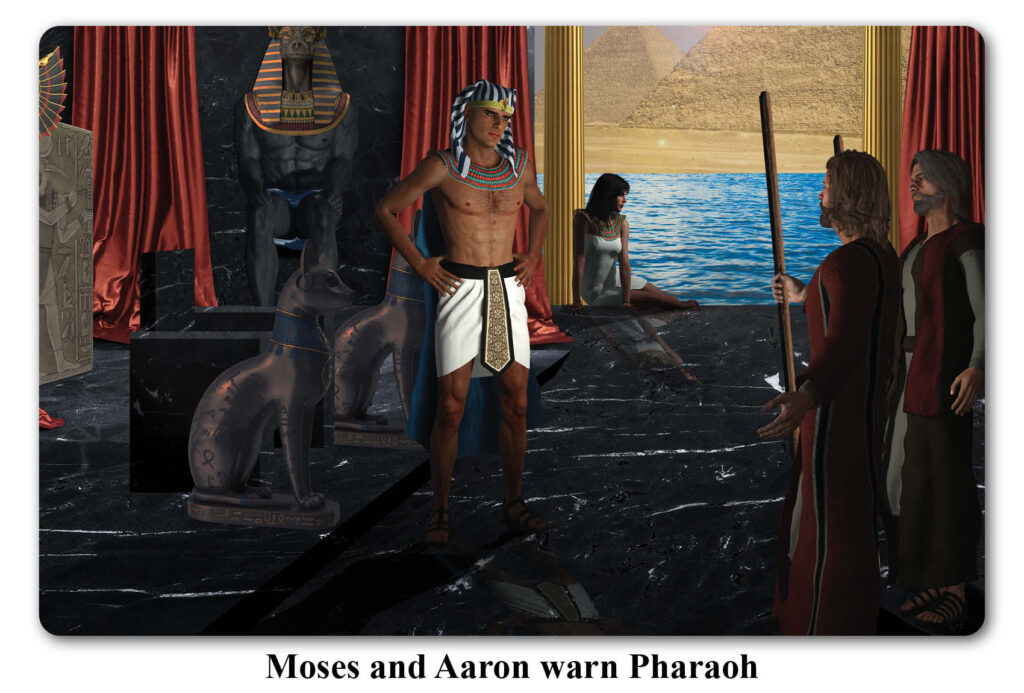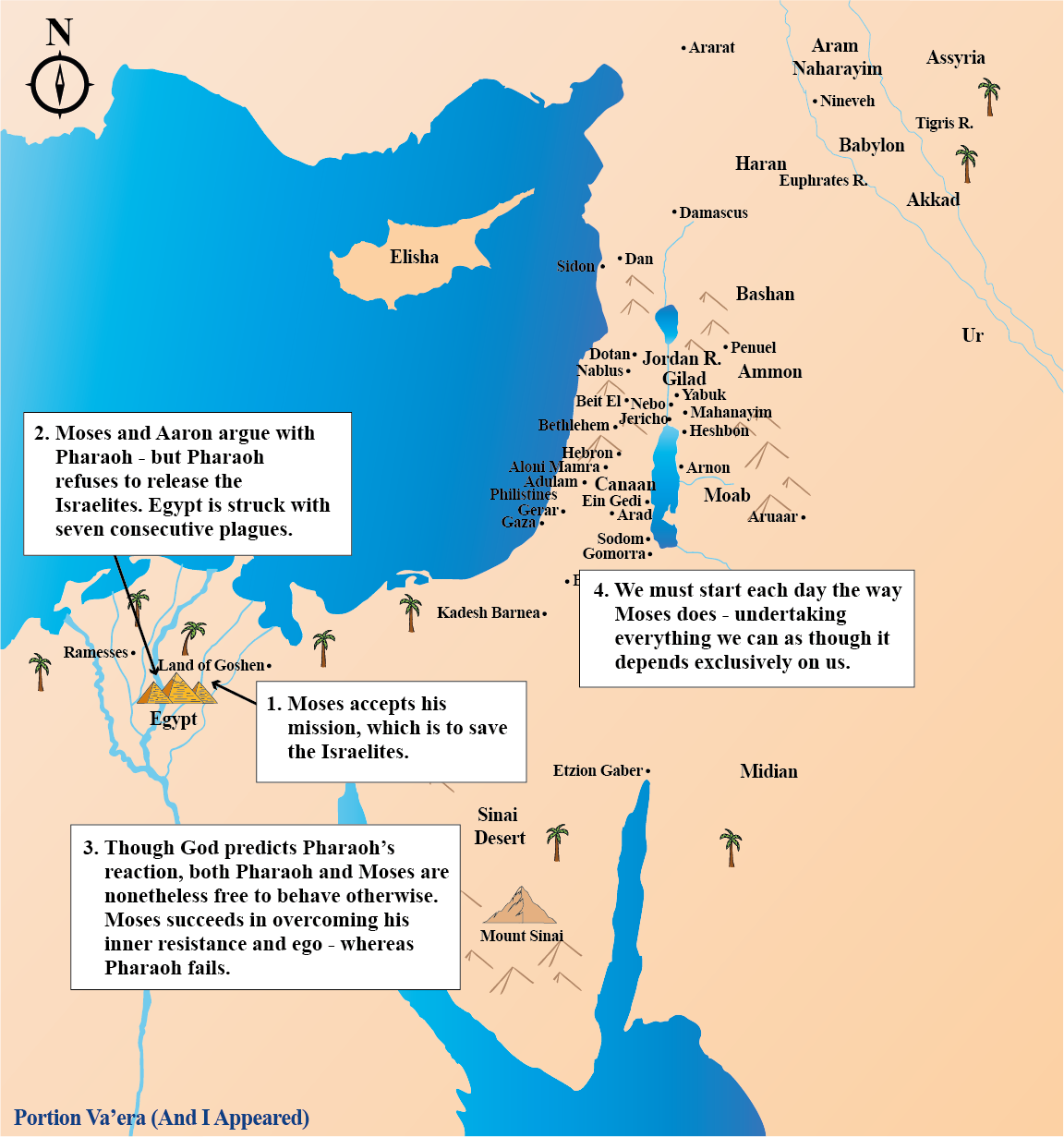
Moses tells the Israelites that he has come to deliver them – but they refuse to listen
“Wherefore say unto the children of Israel, I am the LORD, and I will bring you out from under the burdens of the Egyptians, and I will rid you out of their bondage, and I will redeem you with a stretched out arm, and with great judgments: And I will take you to me for a people, and I will be to you a God:… And I will bring you in unto the land, concerning the which I did swear” Exodus 6:6 – 9
- The Israelites are not only physically enslaved; their minds have also become enslaved due to their reality suppressing their spirits. Throughout their years of bondage, their minds become so submissive that they grow accustomed to their situation and see no reason to escape. The Bible describes their spirits as “crushed” (Exodus 6:9) – they are preoccupied only with the “here” and “now.” As part of the freeing process, we must first rid ourselves of our enslaved minds. Freedom is a divine gift – it is the redemption of spirit. Since the Israelites are in a psychological state of enslavement, they need an external force to stimulate their desire to be free. “A prisoner cannot free himself from prison” (Babylonian Talmud, Tractate of Berakhot 5b).
God sends plagues to Egypt but Pharaoh remains unyielding
“Then the LORD said unto Moses, Go in unto Pharaoh, and tell him, Thus saith the LORD God of the Hebrews, Let my people go, that they may serve me…And the heart of Pharaoh was hardened, and he did not let the people go” Exodus 9:7
- Pharaoh has oppressed and enslaved so many people for so long that he himself is a slave – to his desire for profit at any cost. He therefore cannot accept the Israelites’ freedom. However, in so doing, Pharaoh commits a moral atrocity – he has the option to release his slaves, but deliberately chooses to suffer plague after plague as long as he can keep them under his dominion. In the end, he loses everything – the Israelites leave Egypt and his army is wiped out. Despite our free will, we often act in hurtful ways. Pharaoh does not succeed in overcoming his evil impulse – and therefore incurs divine punishment.
- The brave Israelites decide to leave their unnatural reality and subsequently earn their emancipation. This teaches us that the fight for physical and psychological freedom, as well as the materialization of sublime ideals, are an essential part of our existence.
Pearls of Divine Wisdom: “I Appeared”
- In the beginning, all was light and abundance – everything was perfect. We did not need to exert any effort to obtain anything and everything. But this unearned perfection was not acceptable to us. As such, God created the world through a metaphysical “reduction.” Our mission in this world is to make our way to Sinai and back to the Garden of Eden. There are many obstacles on the path – and we have to struggle to earn our passage back to the light.
- We must begin each day as Moses does – undertaking everything we can as though it depends exclusively on us. And at the end of the day, we can acknowledge that both Moses’ and our successful achievements come from the light.
- Moses doesn’t just see the future – he shapes it. He can see the consequences of every future action in the present. Only those who overcome selfishness and eliminate their obstacles can truly shape the future.
- Although the Creator repeatedly predicts Pharaoh’s behavior, both he and Moses have free will. Moses manages to overcome ego and adversity – whereas Pharaoh fails and is punished.
- In order to win our freedom, we must redeem our souls by gradually breaking our spiritual shackles. This is the very process that the Israelites undergo during the ten plagues.

Proportionality is finding the appropriate response to any situation or challenge; neither too little nor too much.

